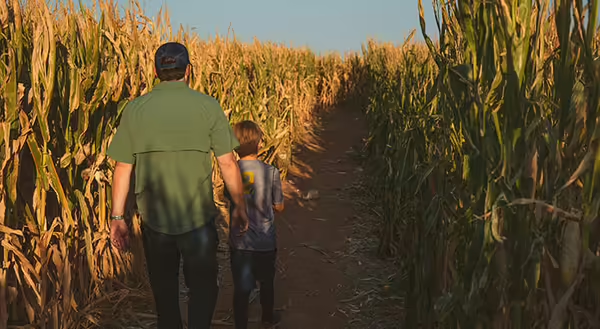
Do you have a pesticide applicator license? If so, how old were you when you first obtained your license? Is it safe to assume that your first applicator license wasn’t as memorable or exciting as getting your first driver’s license? Both licenses come with a significant responsibility and a minimum age requirement. While sixteen is old enough to get you behind the wheel in Illinois, soon, you will need to be at least 18 years old to get an Illinois pesticide applicator/operator license. The updated age requirement will comply with recently revised federal regulations (See 40 CFR 171). Illinois is in the early stages of revising state regulations. The 18-year-old minimum age requirement will likely take effect in 2026 or 2027.
There will be an immediate family exception for certified private applicators who purchase, use, or supervise the use of restricted use pesticides to produce any agricultural commodity on property they own, rent, or otherwise control. The private applicator will still need to be at least 18 years old. However, the exception allows a noncertified applicator who is at least 16 years old to apply a restricted use pesticide under the supervision of a certified private applicator. They must meet the following requirements:
- The supervising private applicator is an immediate family member. The EPA defines immediate family as: spouse, parents, stepparents, foster parents, father-in-law, mother-in-law, children, stepchildren, foster children, sons-in-law, daughters-in-law, grandparents, grandchildren, brothers, sisters, brothers-in-law, sisters-in-law, aunts, uncles, nieces, nephews, and first cousins. “First cousin” means the child of a parent's sibling, i.e., the child of an aunt or uncle.
- The restricted use pesticide being applied is not a fumigant, sodium cyanide or sodium fluoroacetate.
- The restricted use pesticide is not being applied aerially.
The supervising private applicator will also need to ensure that any non-certified applicator applying a restricted use pesticide has received pesticide safety training within the last 12 months. Two of the proposed training options will include:
- Complete an EPA-approved agricultural worker protection standard training requirements for an agricultural handler under 40 CFR 170.501. (See: WPS pesticide safety training requirements refresher: Illinois)
- Attend a training event approved by the Illinois Department of Agriculture that has been determined to meet the training requirements of 40 CFR171.201
This exception applies only to private applicators. The Illinois Department of Agriculture classifies commercial and commercial not-for-hire noncertified applicators as “operators.” All operators will need to be at least 18 years old, even if the supervising applicator is an immediate family member.
ABOUT THE AUTHOR: Travis Cleveland provides subject matter expertise and training in pesticide safety with an emphasis on plant pathology. He provides diagnostic support the U of I Plant Clinic and he coordinates the Home, Yard and Garden Pest Newsletter.